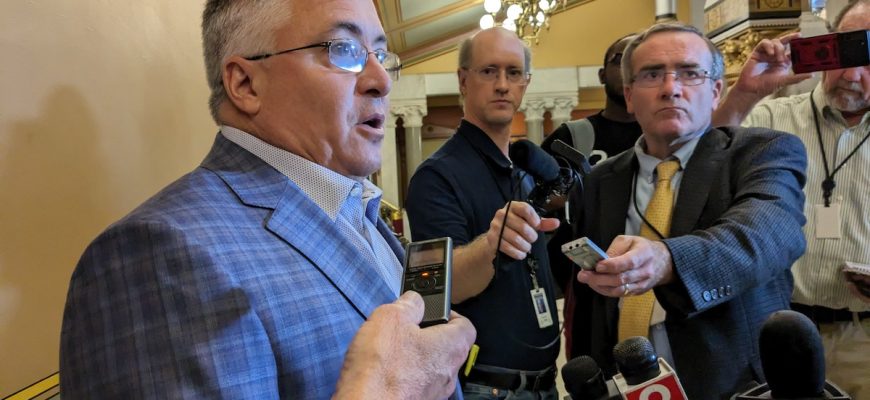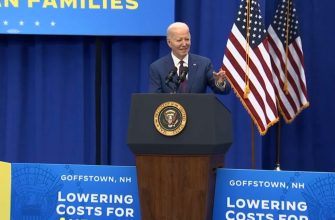
A long heralded bipartisan budget agreement appeared in danger of collapsing Friday over the potential inclusion of a municipal fee for out-of-state trash disposal sought by Gov. Ned Lamont.
State officials in the General Assembly and the governor’s office have been working to adopt a roughly $51 billion two-year budget agreement before the legislative session ends at midnight on Wednesday.
Despite Lamont’s Thursday assurances that a deal had been reached with Democrats and Republicans in the legislature, House Minority Leader Vincent Candelora warned Friday that his caucus worried the budget’s implementing language would include controversial policies including a proposed hauling fee on municipalities that ship solid waste out of state.
“That was a bill that was in the Environment Committee. It was shut down in that committee. It was unpalatable, so why is it being resurrected now through the budget process?” Candelora said Friday.
The governor proposed a $5 per-ton fee on municipal waste shipped out of Connecticut as part of a sweeping bill to address a growing shortfall in state waste management capabilities. The legislature’s Environment Committee removed the provision in March as one of several changes to the bill.
The administration estimates that Connecticut towns ship more than 860,000 tons of trash across state lines each year. On Friday, Lamont said that state officials were still looking for a recurring revenue source for waste management policies and said the fee was “not a done deal.”
“Everybody cares about the environment but they don’t want to pay anything to help make it happen and we’re still negotiating that,” he said.
“I think we should do it. I think we should give municipalities an incentive,” he said. “It’s going to save them a fortune so they don’t have to pay out-of-state haulers to take it to West Virginia. We can treat it better here with recycling.”
While it is not uncommon for elements of typically large budget implementer bills to become controversial, opposition to this year’s implementer threatens to impact support for the overall budget package as legislative leaders are considering running the budget together with implementing language as one bill.
Candelora told reporters the underlying budget still had support from Republican lawmakers but worried it may end up saddled with unpopular concepts that would not pass on their own.
“We are starting to hear about policies being rolled into this budget that is not for the purpose of implementing this budget but the budget is being used as a vehicle to push unpalatable proposals that both sides of the aisle may not like that might end up being incorporated,” he said.
Legislative leaders expressed general support on Thursday for the broad strokes of the budget agreement, which will include income tax cuts for the two lowest earning tax brackets and is expected to abide by fiscal constraints including a cap on state spending.
However, those same fiscal constraints have led to frustrations among advocates and legislators wishing to see greater investments in historically underfunded priorities like the network of nonprofits which provide social services to some of Connecticut’s most vulnerable populations.
In an interview Thursday, Sen. Saud Anwar, D-South Windsor, said he would oppose a recent version of the budget deal unless more funding was approved. Anwar said he would like the budget to include 4.5% funding increases for nonprofits in each of the budget’s two years.
On Friday, House Speaker Matt Ritter said the first year of the budget would include about $50 million to provide some nonprofit workers bonus payments and a cost of living increase of 2.5% in the second year of the budget. Another $50 million would be included for workers of group homes funded through the Department of Developmental Services, he said.
He said that means that some group homes, those with unions, will see more than 2.5% increases and others will see just 2.5%.








